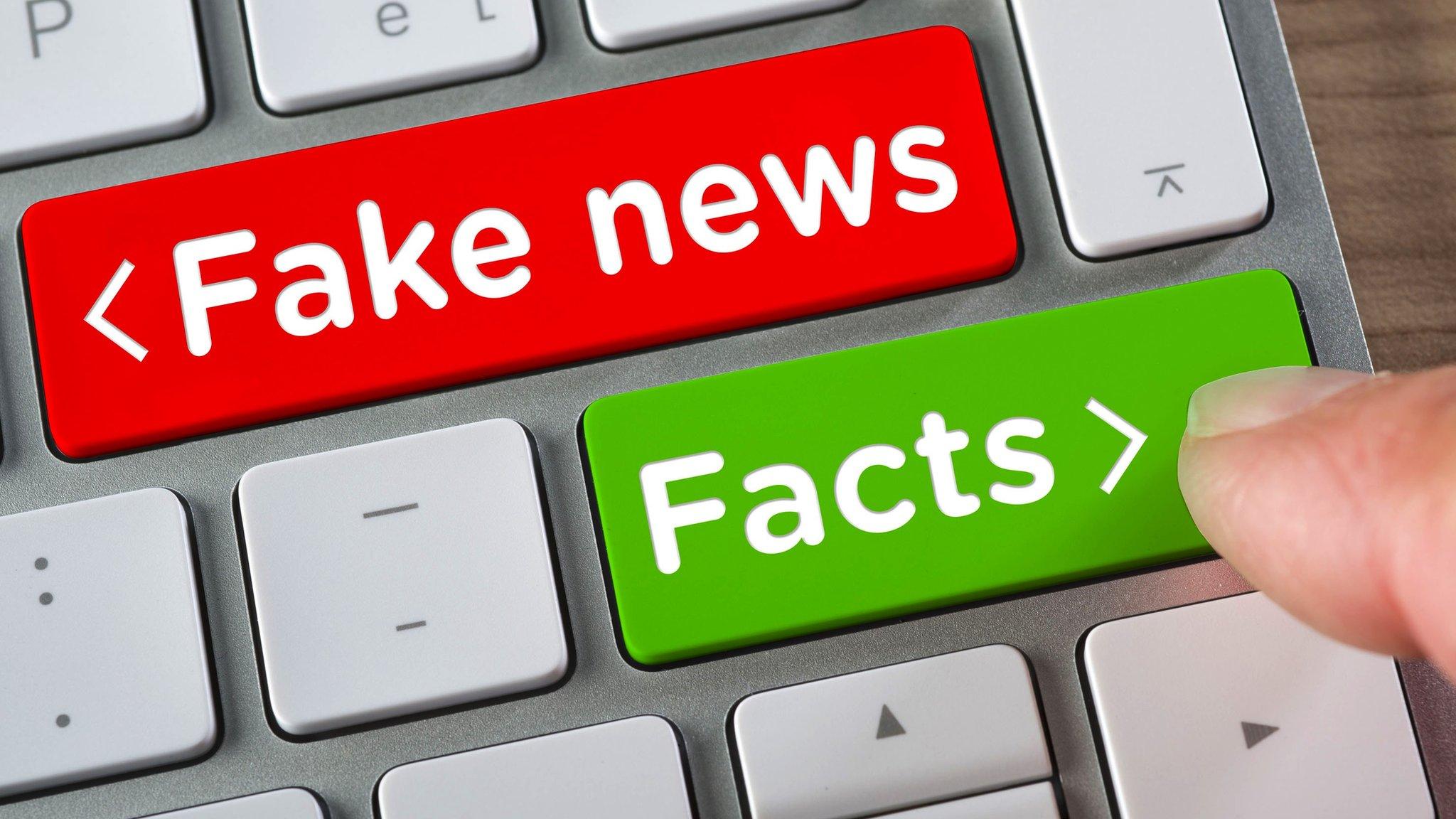Prime minister sets out plans to put pressure on Putin
- Published
- comments
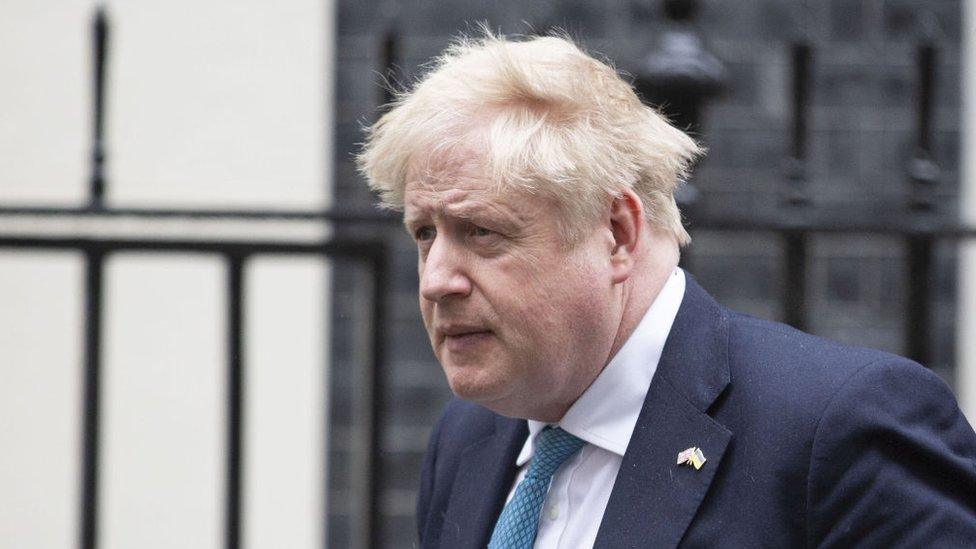
Mr Johnson believes more needs to be done to support Ukraine
Prime Minister Boris Johnson has set out what he believes needs to be done to bring Russia's invasion of Ukraine to an end.
He wrote an essay for the New York Times newspaper which included six key actions to be taken to put pressure on Russia's leader Vladimir Putin.
Mr Johnson's suggested next steps come ahead of a number of meetings due to take place with international leaders over the next few days.
"Putin must fail and must be seen to fail in this act of aggression," he said in a statement.
"It is not enough to express our support for the rules-based international order - we must defend it against a sustained attempt to rewrite the rules by military force."
Ukraine and Russia's complicated relationship explained
Russia's attack of Ukraine, which has seen thousands of Ukrainian people and foreign nationals living in the country travel to neighbouring nations to escape the conflict, has been condemned by 141 nations at the UN General Assembly. The Assembly is part of the United Nations (UN), and this is where lots of debates and policymaking takes place.
39 countries including the UK also made the largest-ever referral for war crimes to the International Criminal Court. The court's job is to investigate some of the world's most serious criminal acts.
However, Mr Johnson believes more needs to be done. He's set to ask world leaders to make a "renewed and concerted effort" to stop Russian President Vladimir Putin, Downing Street said.
What is included in the Prime Minister's six point plan?
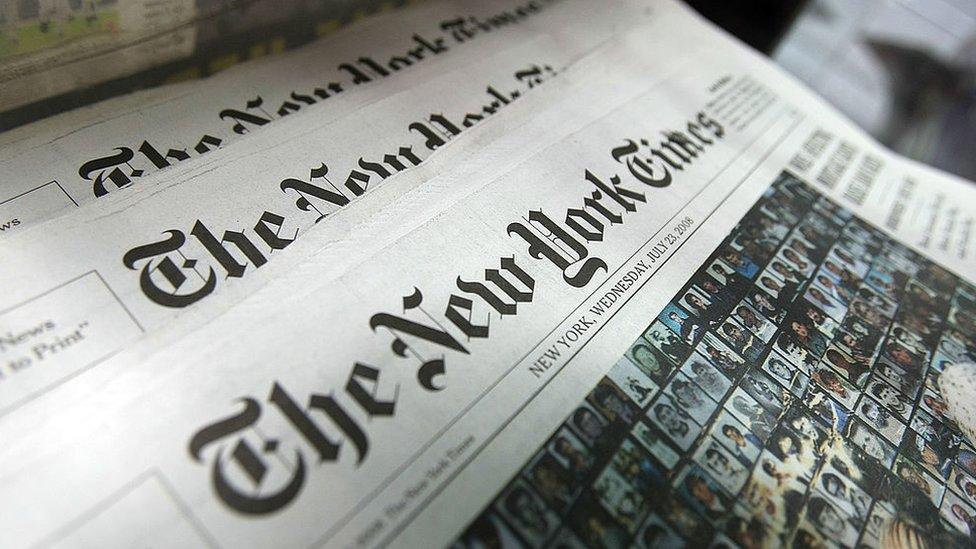
The prime minister wrote an essay for the New York Times setting out key actions to be taken to put pressure on Russia's leader Vladimir Putin
Boris Johnson laid out a six-point plan for how the world can support Ukraine:
World leaders need to work together - Mr Johnson will be meeting with leaders from a number of countries next week to talk about how they can work together to bring a temporary end to the fighting, allow civilians to safely leave Ukraine and to also access to food and medical supplies.
Countries must do more to help Ukraine defend itself - the prime minister says lots of nations are willing to provide defensive equipment for Ukraine and that action should be taken quickly to organise efforts to support the country.
More economic pressure should be put on Russia - Boris Johnson believes more sanctions should be brought against some of Russia's most powerful businessman linked to the government, including Putin himself. Sanctions are penalties placed on nations, businesses or individuals who are seen to have done something wrong. They are often financial and are put in place in to try and change a government's behaviour.
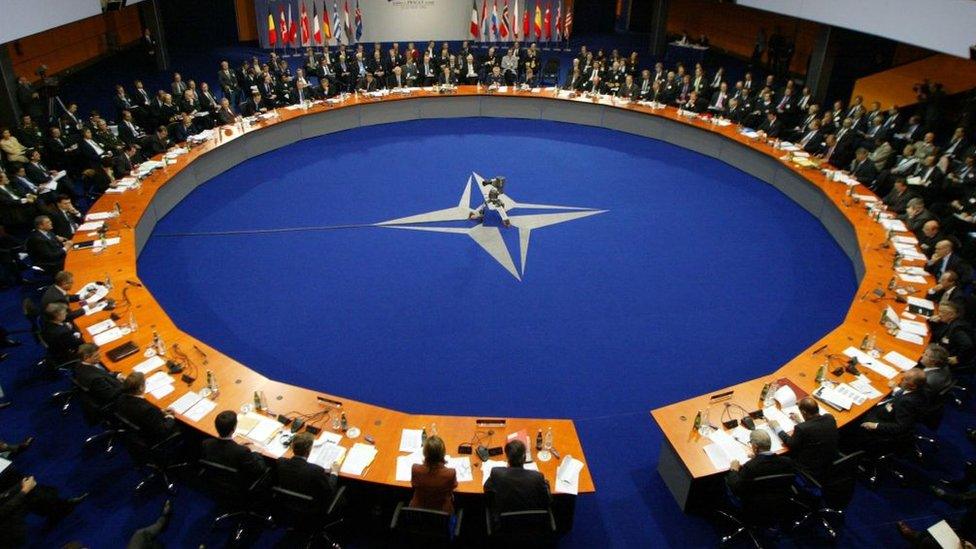
Nato is an international organisation which brings together the armies of various countries, including the UK, the US and France
The rest of the world should not begin to see Russia's actions as normal - Mr Johnson said other nations mustn't allow what Russia is doing in Ukraine to become normalised, no matter how long it lasts for.
Steps to resolve the war should be taken, but only with the full participation of Ukraine's government - the prime minister believes world leaders should be open to negotiations in order to lessen the dangers caused by Russia's attack of Ukraine, as long as the Ukrainian government has full power to make decisions for itself.
There should be efforts to strengthen security among Nato countries - The North Atlantic Treaty Organisation, or Nato, is an international organisation which brings together the armies of various countries, including the UK, the US and France. It was created to make sure its member countries don't fight each other, and that instead, they use their forces to work together for world peace.
What's the response been to actions the UK has taken so far?
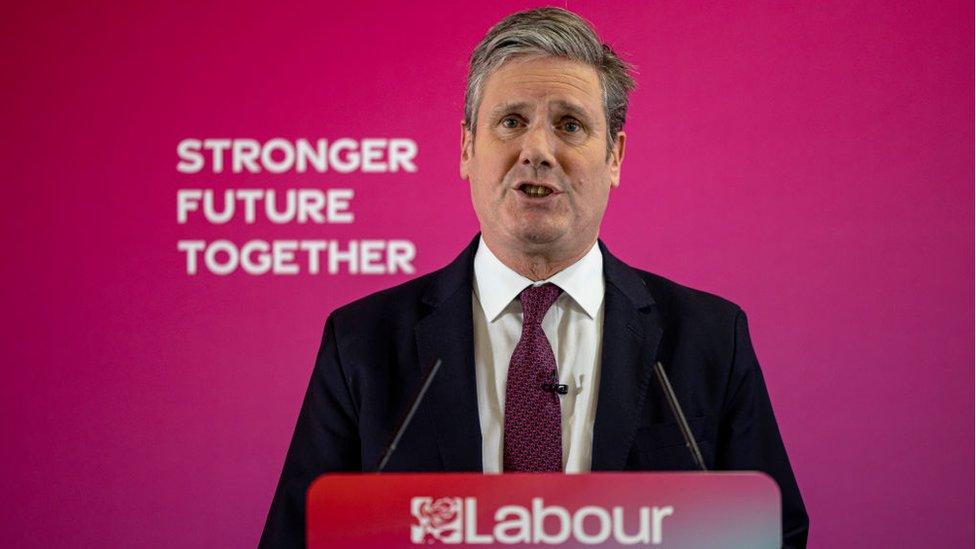
Labour leader Sir Keir Starmer wants new laws to be introduced to prevent Russia's elite from misusing the courts to avoid sanctions
Shadow foreign secretary David Lammy said Labour fully supported the UK joining international efforts to help Ukraine. However, he called on the government to move faster on sanctioning powerful individuals linked to the Russian government.
"It is inexcusable that we have fallen behind the EU and the US on the number of individuals and entities sanctioned. Ministers must move faster, acting against Putin's cronies in days not months," he said.
Labour leader Sir Keir Starmer is calling on the government to work with him on new laws to prevent Russia's elites and other very wealthy people misusing the courts to avoid criticism or sanctions.
- Published4 March 2022
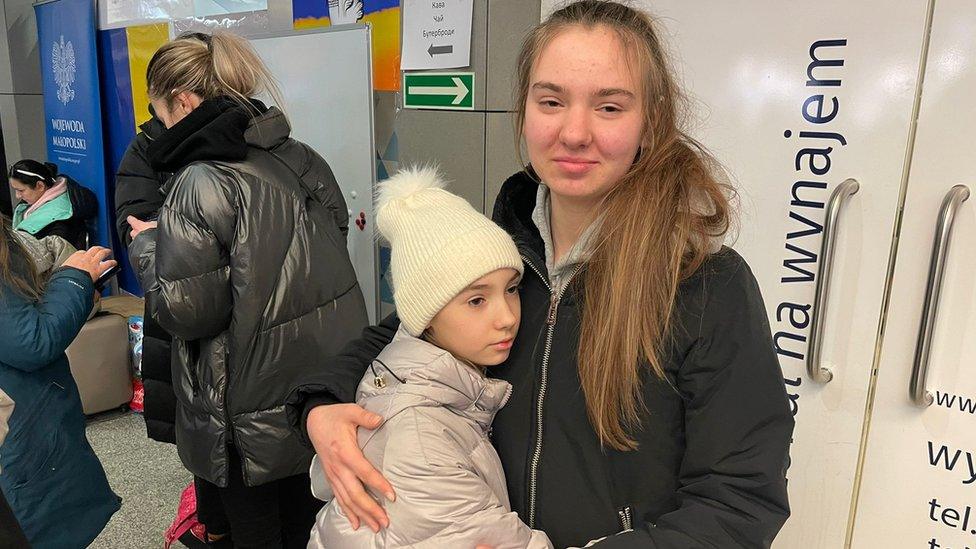
- Published28 February 2022
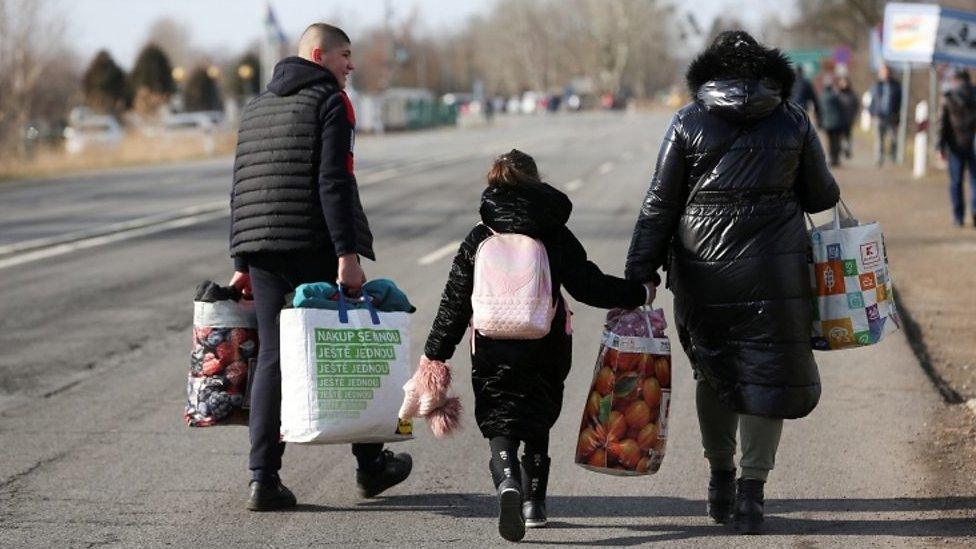
- Published2 March 2022
